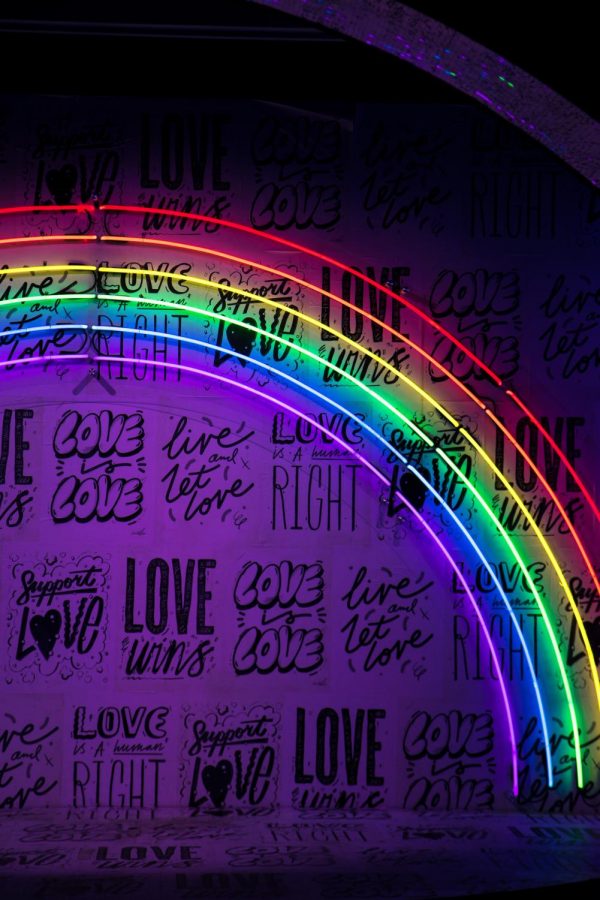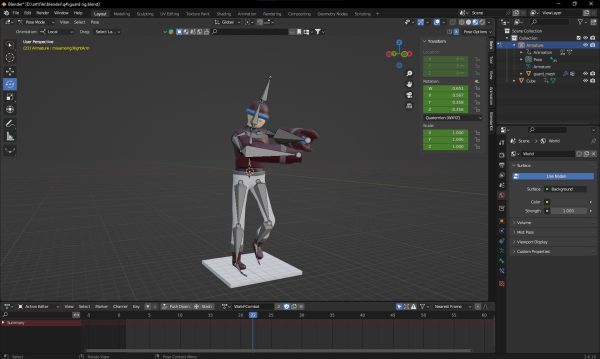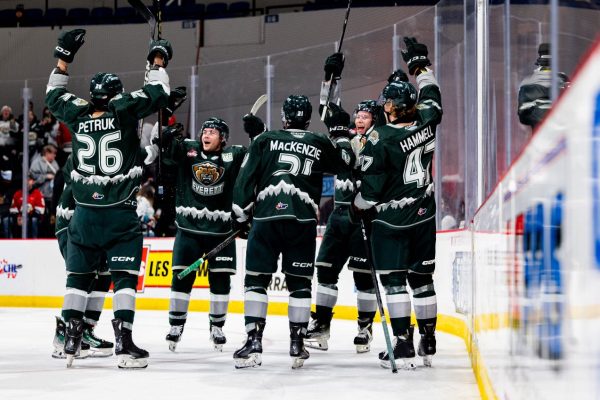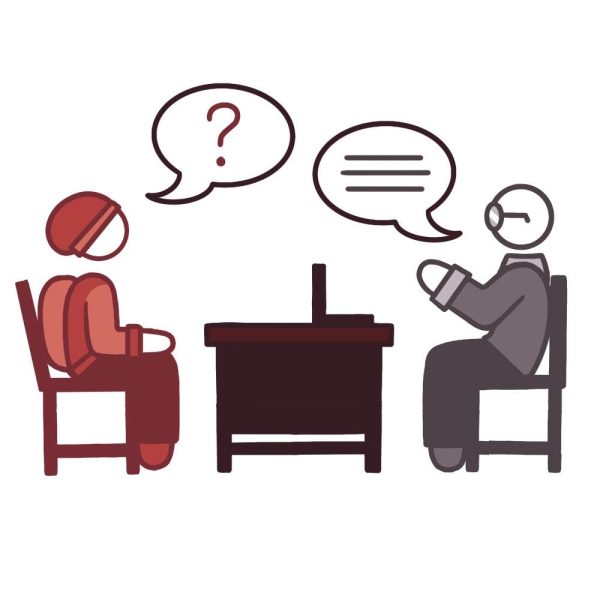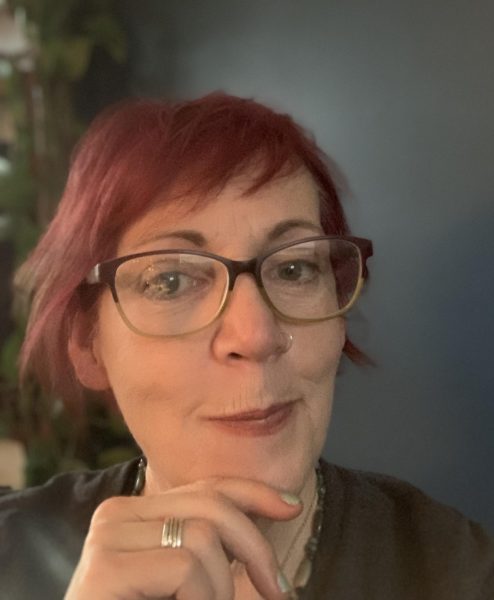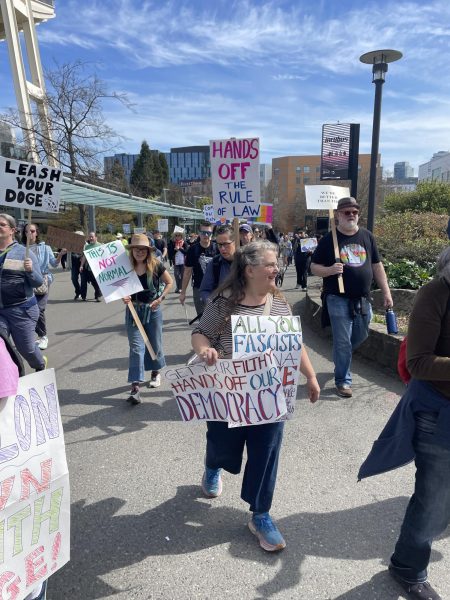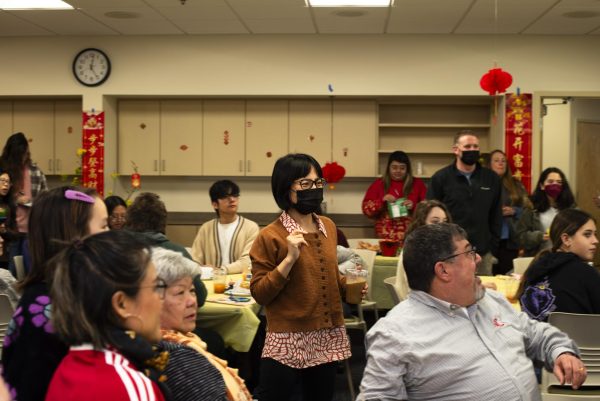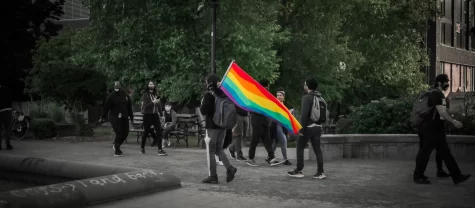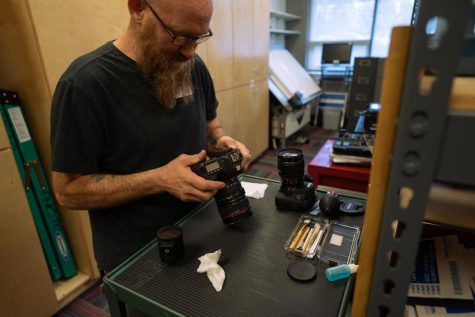LGBTQIA+ Safe Spaces at EvCC
People were struggling. Donald Trump had just been elected president, and with that new truth came many questions. Members of Safe Zone, EvCC’s minority protection and support group, asked themselves the question: “How do we support each other?”
EvCC’s Queer Affinity group (formerly the LGBTQIA+ Alliance) began in 2016. Karl Ritter Smith, along with multiple other staff members that participated in Safe Zone, had come to the decision that the college needed a place to support LGBTQ+ members of staff. “[it is] a space for queer members of staff to meet once a month,” said Ritter Smith. “A place to discuss what it’s like to be queer on campus.”
“It started as having lunch once a month, but it began the discussion of ‘how do we support each other?’” said Ritter Smith.
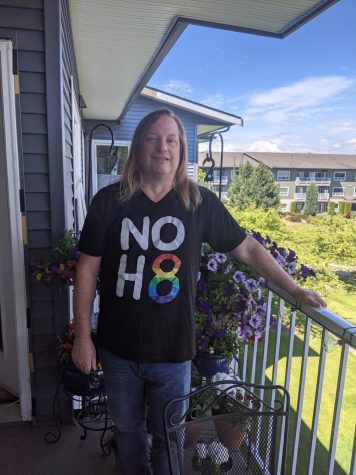
Karl Ritter Smith, Associate Dean of Enrollment Services at EvCC, is an openly queer staff member who has been at EvCC for over 20 years. He has been present in a variety of different roles and services including involvement in many LGBTQ+ groups on campus: Queer Affinity, Safe Zone and Triange Alliance. Karl began participating in support groups, but came out publicly in 2015.
EvCC offers a variety of services for LGBTQ+ students, but until the Queer Affinity group was created there was a lack of support for staff, who deal with similar issues. The Affinity group has provided a safe place for as many as 22 staff and faculty members at a time. According to Ritter Smith, being off-campus due to COVID-19 has made it harder to support each other, but the group remains active.
As well as his role in founding the Queer Affinity group, Ritter Smith served as the faculty advisor for Triangle Alliance Club for 4 years. Triangle Alliance is a student-led club at EvCC that provides support and information for LGBTQ+ issues. As advisor, Ritter Smith oversaw weekly meetings of club members and, on occasion, would take the club on trips off-campus.
“Participating in students being themselves is very powerful,” he said.
“If there’s one thing I’m most proud of, it’s the Pride Center,” Ritter Smith said. The creation of the Pride Center was a student-driven initiative, but Ritter Smith was instrumental in the creation of the space. The center serves as a physical space for LGBTQIA+ students to be themselves and have support whenever it is needed.
For queer or questioning students coming into the school, Ritter Smith recommends they go to the Pride Center. While open, the Center is continuously ‘staffed’ by members of Triangle Alliance that are happy to help and support anyone who comes in. “Give yourself the opportunity to enter that space,” he says.
He also suggests contacting the college’s Diversity and Equity Center as an alternative source of support.
Ritter Smith understands the need for a variety of information and support for queer students and staff in any stage of their journey. “Coming out to yourself is one thing, coming out to others is a lot harder.”
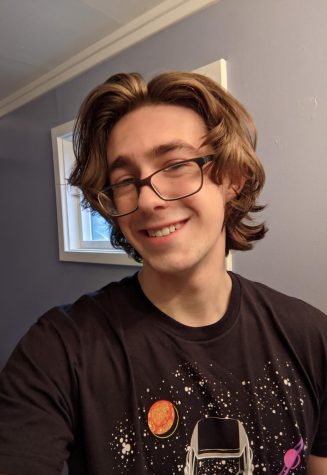
Where does The Clipper fit into your long-term goals?
I am seeking a future in either communications or political journalism and The Clipper is my first...

